One of the first choices you make for your baby is how you will feed your baby. Breastmilk is the most natural and healthiest nourishment for your baby’s first six months. Formula is a good alternative if you are unable or do not want to breastfeed.
Breastmilk is the best
Breastmilk is the most natural and healthiest nourishment for your baby’s first six months. It is easy to digest and full of unique nutrients and antibodies. Breastmilk strengthens the baby’s immune system and boosts healthy growth and development. It lowers your baby’s risk of contracting a number of illnesses. Breastfed babies are sick less often and have a lower risk of developing allergies.
Preparation for breastfeeding
Learning more about breastfeeding beforehand is helpful. After the birth of your baby you will receive guidance and advice which can be of most use to you if you already know a bit about what to expect. Establishing breastfeeding sometimes takes energy and perseverance. But it pays to be prepared! At our free breastfeeding information evening, given by Sanne Koeman, you will learn how to position the baby on the breast, the importance of skin to skin contact, the course of the breastfeeding relationship and possible solutions when problems arise. Other options for preparation include reading more about the subject or attending a breastfeeding course
Assistance with breastfeeding
Midwives, maternity care assistants, the nurse at the consultatiebureau and nurses on the maternity ward are all trained and have experience in assisting mothers with breastfeeding. The lactation consultant is the specialist professionally trained to help mothers with breastfeeding. If breastfeeding is more difficult than expected and our assistance is not enough to solve the potential problems, contacting a lactation consultant is a good idea. During a consult she can help you find a good solution and offer useful advice.
The cost of a consultation with a lactation consultant is often covered if you have additional coverage through your insurance. Some maternity care organisations have their own lactation consultant. We work closely with Sanne Koeman, lactation consultant and specialised nurse. Her contact information is listed on our useful links page under Lactation consultant.
For more information about breastfeeding see the website of the Kenniscentrum Borstvoeding
Infant formula, a good alternative
Formula feeding, also known as bottle-feeding, is a good alternative if you cannot or do not wish to breastfeed. There are several brands of baby formula, with different ingredients and compositions. In general it does not matter which you choose, although after making a choice it is best to stick to one. Before the birth make sure you have infant formula, bottles and teats at home.
The maternity care assistant will give your more information about preparing infant formula and will guide you during this first period. During the first weeks the amount of formula given will increase daily. The maternity care assistant will also show you how to keep a useful feeding schedule.
You can find more information about formula feeding op the Voedingscentrum website.
Hypoallergenic formula
If your baby has a higher chance of developing a cow’s milk allergy, consider choosing hypoallergenic formula. There is a greater risk if one of the parents or siblings has or had allergies such as eczema, hay fever, asthma or food allergies. In this type of formula, the proteins that cause a cow’s milk allergy have been partly broken down, snipped into smaller pieces, so it’s less likely to cause a reaction.




